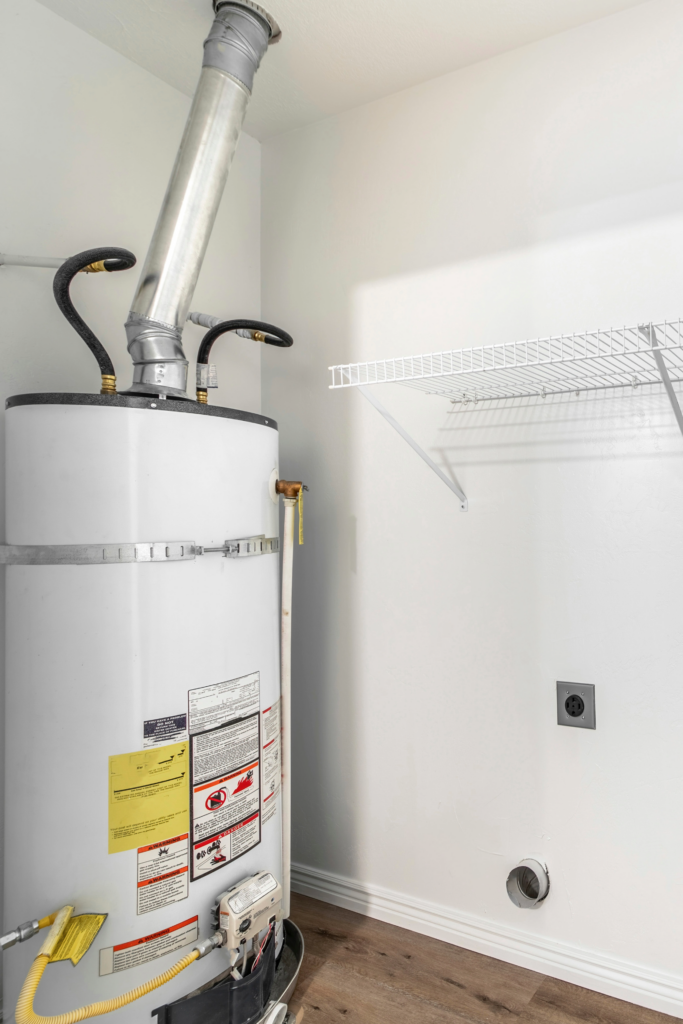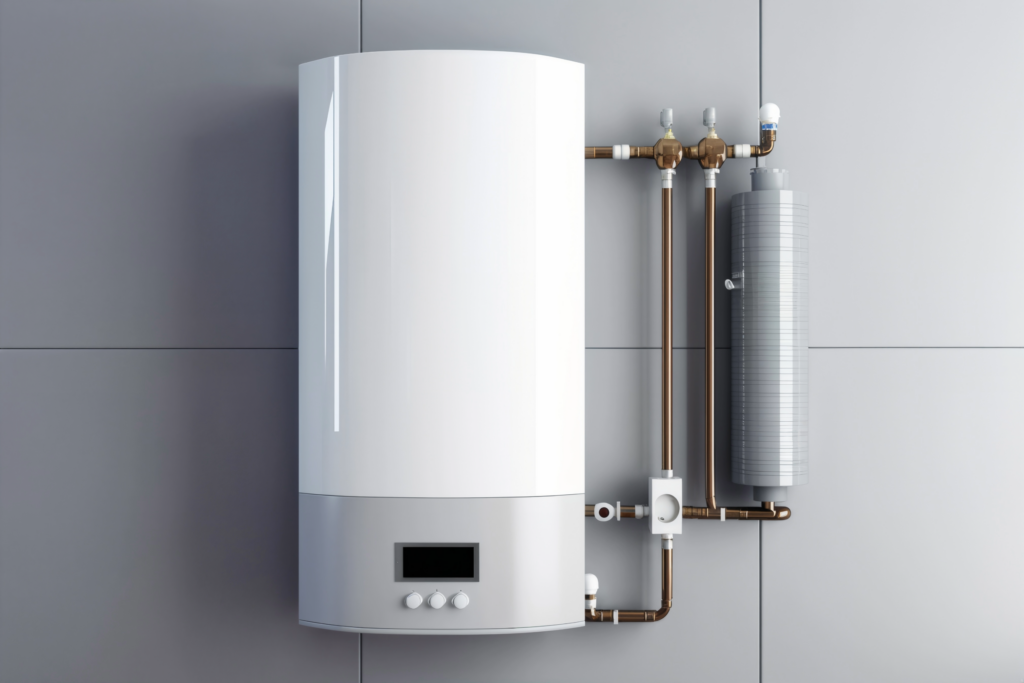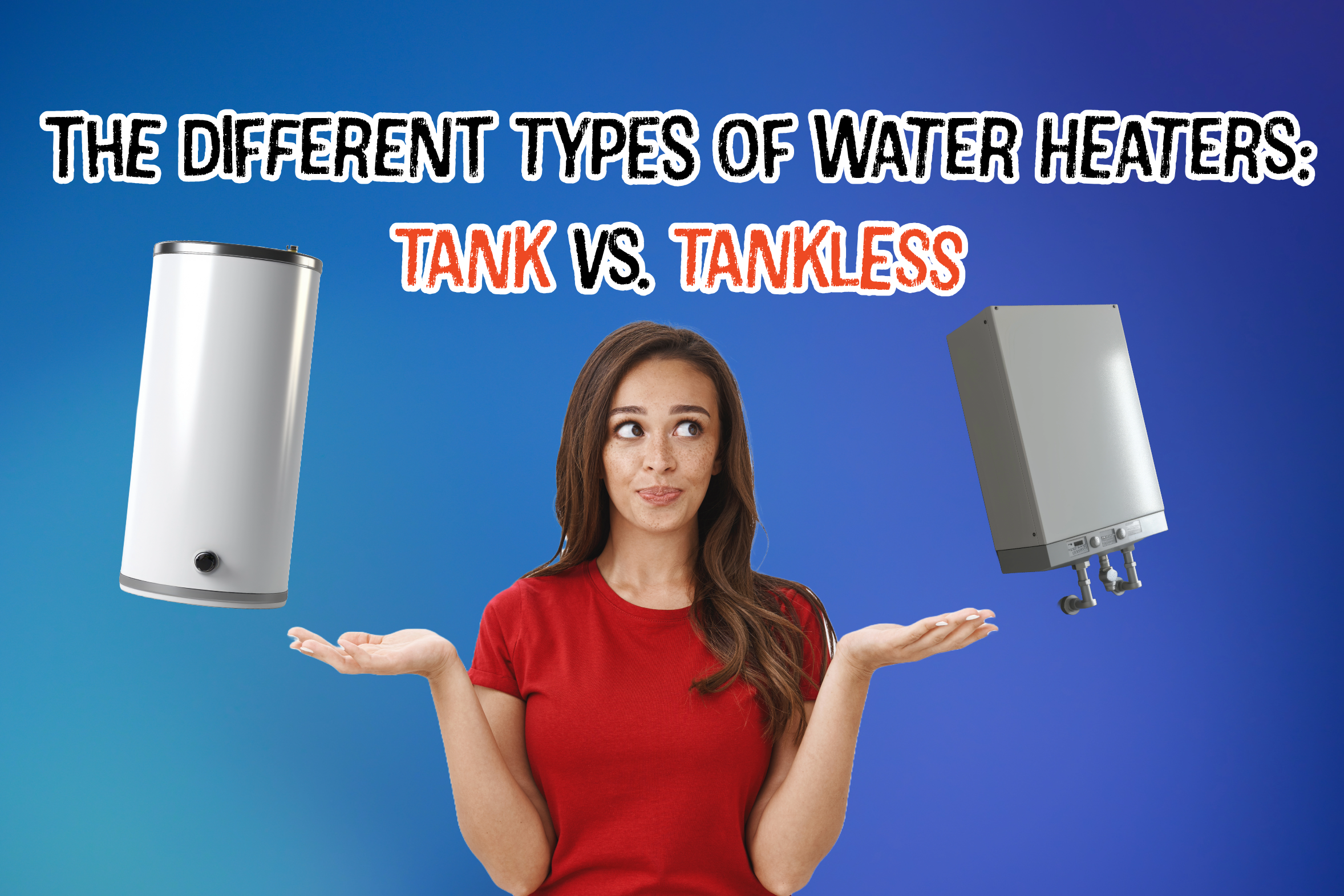Understanding the distinction between tank and tankless water heaters is crucial when considering a replacement. Like many products, both options have their advantages and disadvantages. It’s important to recognize that there is no one-size-fits-all water heater. Each household has unique requirements that will influence the best model for your situation. Please allow your experts at Gahanna Plumbing & Drain to assist you in identifying your specific needs and provide an overview of the pros and cons associated with each type of water heater.
Tank Water Heaters & Everything You Need to Know
Tank water heaters, commonly referred to as storage tank water heaters, are the most prevalent type of water heater utilized in residential settings. These devices consist of an insulated tank that holds, heats, and stores hot water until it is required. Typically, tank water heaters operate using either electricity or natural gas as their energy source, with sizes ranging from 30 to over 75 gallons for residential applications.

The Pros of Tank Water Heaters:
- Streamlined installation process: Tank water heaters offer a straightforward installation, resulting in lower upfront costs.
- Ample hot water storage: These heaters provide a significant supply of readily available hot water due to their capacity to heat and store it efficiently.
- Low maintenance requirements: Maintaining a tank water heater is manageable with a regular flushing schedule, which can be performed either independently or by a plumbing professional.
- Longevity: With appropriate maintenance, a tank water heater can have a lifespan of 8 to 10 years.
The Energy Efficiency of Tank Water Heaters:
Certain storage tank water heaters are designed with exceptional insulation that effectively reduces standby heat loss, contributing to lower overall monthly energy costs. This highlights the importance of selecting the right water heater for your home.
The Overall Costs of Tank Water Heaters:
It is essential to evaluate all associated costs when considering tank water heaters.
- Tank water heaters generally have lower initial costs.
- They also incur reduced maintenance expenses.
- Additionally, their simplicity contributes to lower repair costs.
Ideal Users for Tank Water Heaters:
Due to the limited supply of hot water, which is restricted by the capacity of the water heater’s tank, these units are most suitable for small to medium-sized families.
Tankless Water Heaters & Everything You Need to Know
Tankless water heaters, commonly referred to as on-demand water heaters, utilize highly efficient burners that quickly heat water as needed, providing it on demand. These systems eliminate the need for storage, enhancing efficiency. Typically, tankless water heaters are powered by either electricity or gas.

The Pros of Tankless Water Heaters:
- Continuous supply of hot water: A tankless water heater ensures that you will never run out of hot water, earning it the designation of an “on-demand” water heater. Unlike traditional water heaters, which store a finite amount of hot water and require time to refill and reheat once depleted, a tankless system delivers an uninterrupted flow of hot water as long as there is adequate fuel or power for operation.
- Space-efficient design: Tankless water heaters are typically mounted on walls, allowing them to occupy significantly less space than conventional models that take up floor space. This feature is particularly advantageous for smaller homes where space is at a premium.
- Extended lifespan: With proper maintenance and depending on your home’s water quality and usage, tankless water heaters can last up to 15 years. In contrast, traditional water heaters generally have a lifespan of around 8 to 10 years. By opting for a tankless water heater, homeowners can benefit from fewer replacements over time, leading to long-term cost savings.
The Energy Efficiency of Tankless Water Heaters:
According to energy.gov, homes equipped with tankless water heaters can achieve energy savings of up to 34% compared to traditional storage tank heaters. Therefore, if your household consumes a significant amount of water daily, a tankless water heater may be the most suitable option for you.
Additionally, it is important to consider that, despite the higher initial costs compared to a storage tank water heater, the energy-efficient benefits will ultimately lead to substantial monthly savings in energy costs.
The Overall Costs of Tankless Water Heaters:
It is essential to evaluate all associated costs when considering tankless water heaters. Bear in mind that while tankless water heaters have higher initial costs, they offer greater monthly savings due to their energy efficiency.
Ideal Users for Tankless Water Heaters:
- These water heaters are particularly suited for larger homes or families, as they provide an endless supply of on-demand hot water.
- They are also recommended for residences with hot tubs or soaking tubs.

Understanding the differences between tank and tankless water heaters is crucial for making an informed decision that best suits your household needs. We hope this information has addressed many of your questions and provided valuable insight to guide you in the right direction.
Feel free to reach out to Gahanna Plumbing & Drain by calling us today at (614) 245-2256, or schedule an appointment online now by clicking here!




